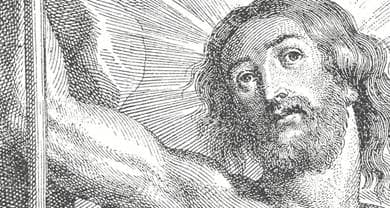- Trending:
- Pope Leo Xiv
- |
- Israel
- |
- Trump
- |
- Social Justice
- |
- Peace
- |
- Love

RELIGION LIBRARY
Anglican/Episcopalian
Sacred Texts
From the time of the establishment of the biblical canon until the eve of the Reformation, western Christendom recognized the books of the Hebrew scriptures as having been inspired by God. They were considered sacred scripture, and they constituted the Old Testament. The Greek language edition (called the Septuagint) of the scriptures, which was used around the time of Christ, also included a number of other Jewish books. In the Church, these books were considered by many to be canonical and were commonly printed in the Vulgate, the Latin translation of the Bible. Yet their status was disputed. Church fathers such as St. Ambrose and St. Augustine approved of them, while St. Jerome and a number of eastern church fathers did not. Jerome referred to them as "apocrypha."
During the 16th century, the appropriate status of the apocryphal books became a matter of disagreement between the Church of Rome and the Protestant churches. At the Council of Trent, the Church of Rome declared most of the books of the Apocrypha to be canonical. Anglicanism took a different approach, not unlike that of other Protestants of the time. In Anglicanism, the Apocrypha could be used in worship as providing examples of life and instructions in manners, but not for the establishment of doctrine. While most of Protestantism has since abandoned the Apocrypha entirely in the context of worship, Anglicanism continues by the earlier standard.
Regarding the New Testament, Anglicanism views all 27 of its books, as commonly received, to be canonical. Like most Christians, Anglicans interpret the Old Testament as consistent with the New, seeing both as offering salvation in Christ. The Old Testament offers eternal life as promise, the New as fulfillment. The Mosaic Law remains applicable to Christians, but only in part: specifically, the moral laws. Laws regarding ceremonies and rites do not bind Christians, and civil laws do not bind any civic government. This is a conventional Christian explanation for adopting some, but not all, of the Mosaic law; this is based in part on biblical passages such as Mark 7:14-22, in which Jesus declared all foods clean, thus overturning the Mosaic regulations.
As to the authority of the Bible, Article VI of the Thirty-nine Articles states as follows: "Holy Scripture containeth all things necessary to salvation: so that whatsoever is not read therein, nor may be proved thereby, is not to be required of any man, that it should be believed as an article of Faith, or be thought requisite or necessary to salvation." The main thrust of the statement is in contradistinction to the Roman belief that the unwritten "apostolic" traditions of the Church are of equal authority with scripture. No tradition of the Church without a scriptural foundation was to be accepted as an article of faith. The Bible is authoritative and sufficient for the life of faith, and is the standard of faith.
Absent from the Thirty-nine Articles and from Anglican pronouncements generally is a proclamation regarding the nature of scripture itself. In contrast to, for example, Reformed Protestantism, there is no reference to the scripture's having been inspired by the Holy Spirit, no statement that its books are not merely human documents. Subsequent attempts officially to acknowledge scripture's nature as God's revealed word have never received adequate support. Later statements have effectively returned to the substance of the Thirty-nine Articles.
Since the late 19th century, many Anglicans have embraced the historical, critical approach to scripture put forward by the liberal movement . Darwinism has also strongly influenced many Anglican thinkers, moving them to doubt the biblical account of creation. As a result, the view has emerged that the scriptures do not, and were not intended to, speak on matters that are properly the subject of scientific inquiry. Although aimed at disputes over Darwinism, the effect of this approach is potentially much broader. Indeed, history itself may be deemed properly the subject of scientific inquiry, eviscerating the Bible's authority to speak on central matters of the faith such as the Incarnation and the Resurrection.
In sum, the Anglican approach is that the scriptures are authoritative and primary; they provide what a person needs for salvation, and they are the standard of faith. Matters such as divine inspiration are open to interpretation, and the Bible's purpose is not to speak on matters of science. This is not to claim that all or even most Anglican clergy persons and laity agree with this approach in all its particulars. Numerous Anglicans accept biblical authority and sufficiency, but reject the exclusion of science and would prefer to add a clear and positive pronouncement of the divine origin of the scriptures. Many others agree with the omission of a statement of divine origin and embrace the inclusion of science, but also reject claims of scriptural authority and sufficiency.
Study Questions:
1. What role did Hebrew scriptures have prior to the Protestant Reformation? What did they include?
2. What is the Apocrypha? How did Roman Catholicism, Protestantism, and Anglicanism view these scriptures?
3. What is the Mosaic Law? What does it include?
4. What are the Thirty-nine Articles?
5. How do Anglicans view the Bible? Why does it differ across the tradition?










